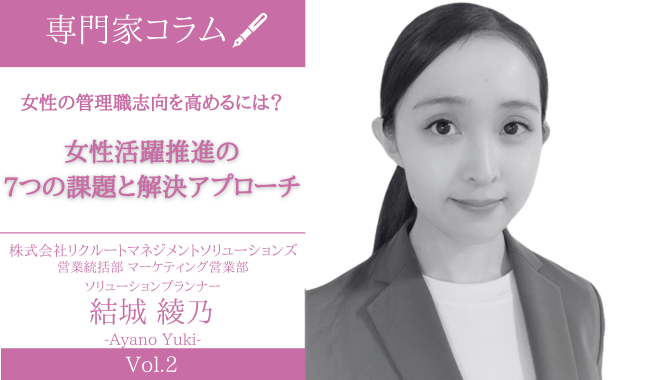時間を何倍にも増やしましょう。タイムマネジメントは、ロジックよりも感情の問題です。

私達はみな時間と仕事の関係について話すとき、ロジックについて論じます。パフォーマンスを最適化するために整理できる方法とプロセスについて論じます。しかし最近私は、この時間の概念とはロジックではなく感情に関わるものであると発見しました。
これによりアインシュタインの相対性理論と、一般人に対するその説明を思い出すことになりました。苦しいとき時間は非常にゆっくりと進み、数分がまるで数時間であるかに感じます。しかし、楽しいときには、時間は瞬く間に過ぎていきます。これを仕事に当てはめてみましょう。ポイントは似たようなものです。仕事を楽しみ、その間フロー状態に入るとすれば、時間の流れは速くなり生産性を感じることになるでしょう。同様に退屈な仕事をしている場合、または不安を感じる環境下では、時間は非常にゆっくりと流れます。
ヨーロッパにある大手企業の上級管理職は、ある日以下の洞察を行いました。彼女は、終了時刻の数分前、タイムレコーダーに記録し退勤できるよう、17時になるのを並んで待っている従業員を目撃しました。その場所は果たして従業員にとって退勤時間を待つことができないほど悪い職場だったでしょうか?彼らの公平のためにいうと、そうだったようです。
これらを解決する為に唯一残された方法は、いかにワクワクさせる仕事を増やし、退屈な仕事を減らすかです。時間は私たちを決定するものではなく、実際には自己管理するものです。どうすれば自分自身をうまく管理できるでしょうか。私が学んだ方法は「マルチプライヤー(乗数)」(自分自身を整理し組み立てることで時間を何倍にもできるという考え方です)と呼ばれ、5つのステップに分かれています。
参考書:Rory Vaden Procrastinate on Purpose (ローリー ヴァーデン著 故意に先延ばしにする)
1-排除
ここでの目標は、行うべきではない、影響の小さい仕事を取り除くことです。Peter Drucker(ピーター・ドラッカー)は以下のように述べました。全く実行する必要のないことを、効率的に実行するほど無駄なものはありません。これについて、有名なDerek Siversである、CD Babyの前CEOの述べた、私の好きな話をご紹介します。彼は「もちろん!」または「いいえ」という返事と感情について述べています。「うん、やりたいな!」と感じたら、それをするべきです。ただし、次のように「うん、まあ、いいよ」といった具合に感じる場合には、すべきではありません。これは、単純に聞こえますが、実行は困難です。「いいえ」と言うのは簡単ではないからです。その他排除すべきものとして、不要な会議、長いeメール、テレビを見ること、作業の断続的変更、不合理な人々が挙げられます。
2-自動化
これより簡単なものはありません。自動化できるものは全てそうすべきです。例えば、オンラインでの支払い、昔からのクライアントに対するフォローアップ、ソーシャルメディア管理、データバックアップの同期、カテゴリカルスケジュールなどです。こうした自動化における問題は、場合によっては追加コストがかかることです。そのため思考を変え、実質的にあなたのビジネスとあなた自身に投資すると考えます。こうして時間を節約するときはいつでも、あなたは実際に時間を買っており、子供と一緒の時間を過ごせるよう早めに家に帰ったりします。
3-委任する
委任は多くの人にとって難しいことです。自分自身でやれば、あなたの望み通りに完璧に出来上がるとあなたは知っています。しかし、実際には、ビジネスとはこのような形では成長できないことに注意する必要があります。アーティストやフリーランサーである場合を除いて、結果というものは、不完全であることもあり、それはよいことだと理解しなくては、CEOやマネージャーとしてのキャリアを伸ばすことはできません。私は30倍ルールで働いています。自分で5分以内にできる作業の場合、部下にその方法を説明するのには150分かかるものと考えます。必ずしも一度の説明で終了せず、数週間かかることもあります。しかし、1年間毎日5分のタスクを実行する必要がある場合、そのタスクは1250分(5 x 250営業日)かかることになります。 しかし、誰かにそれを行うように教えると、その年には、説明時間に150分を費やしたとしても、1100分を節約できます。より長時間のタスクである場合を想像してください。どのくらいの時間を節約できますか?
4-先延ばし
その仕事を後で行うようしばらくほおっておけますか?あなたが自問する問題です。すべてのタスクには常に優先性と緊急性があり、そのタスクを計画に組み込むことが必要です。慌てず完了することが可能な段階まで待つのが最善の方法です。物事は変化し、計画も変化する。日程が変更されることもあれば、価格の変化、法律の変更、戦略の変化、技術の変化、天気の変化などもあります。例えば、あなたは、支払いの直前まで、お金を投資する可能性があることを知っているので、早めには支払うことはありません。ただし、金利と信頼の問題があるために、支払いが遅れるのは好みません。そのため、あなたは適切なタイミングで支払いを行います。どのタスクでも同様ですが、適切なタイミングでそれを行うための細い線があります。
5-集中する
ついに今こそ、行動する時です。優先度の高いタスクがあり、それを完了する必要があります。あなたはあなた自身に対し、自己に集中し、自己を守る許可を与えなければなりません。これは、あなたが利己的だから、自身だけに焦点を合わせるのではなく、人々が最善を尽くす間のあなたに依存しているからです。他の人々をそのタスクから解放し、自分のことを成し遂げられるように、あなたはタスクを遂行する必要があります。次の最も重要なタスクを達成するまでは、その他は全て気を散らす原因となります。大きなことに集中できるように、小さなことを一時的に無視します。人は、他人を失望させることにこそ最大の恐怖を感じるため、自身の時間を犠牲にします。しかし、他の人に対するあなたの最大の義務は、最高の自分であることです。
それでは、次に進んで、自分自身を整理し組み立て始めてください。当社はかつて従業員のエンゲージメントについて考察を行いましたが、そもそも時間を制御できなければ誰も仕事に集中して取り組むことはできません。そこで、時間を節約する自動化ツールに焦点を当てました。WelcomeHRは、一部のタスクを自動化して時間を節約するのに役立ちます。また、ここでは、プラットフォーム内のタスクを他のユーザーに委任して時間を節約することもできます。
質問、疑念、提案については、お気軽にお問い合わせください。
Multiply your time. Understand that time management is not logic, it is emotional.
When talking about time and work, we all talk about logic, about the methods and process that one can organize to optimize their performance. But recently I came upon this concept of time as not logic, but emotion.
It reminded me of Einstein with his relativity theory and the explanation for common people. When you are in pain, time goes very slowly and a few minutes few like hours. But when you are having fun, time flies too fast. How does this apply to work? The point is similar, if you are having fun at work, doing a job that puts you into that state of flow, time will goes fast and you are going to feel productive. With the same analogy, if people are doing dull work or being in an environment where they feel anxious, time will be painfully slowly.
There was this high level executive at a big company in Europe that one day had an insight: She saw employees lining up, a few minutes before the ending time, waiting to become 17h and they could clock out and leave. Was the place that bad that people couldn’t wait to leave? To be fair with the team, it seems it was the case.
So the only thing left to do is how to do more of the work that excites us and less of the boring work. Time is not something decided upon us, but it is actually self-management. How can I manage myself well enough to be able to do that. The method that I learned was called the “Multiplier”, ( the idea is that by organizing yourself, you are going to be able to multiply your time ), and it is divided into 5 steps. Reference book: "Procrastinate on Purpose”, by Rory Vaden.
1- Eliminate:
The aim is to take out tasks that have low impact, that you should not be doing. As Peter Drucker said: There is nothing so useless as doing efficiently what should not be done at all. For this one, my favorite quote is from the previous CEO of CD Baby, the famous Derek Sivers. He talks about the "Hell Yeah!” or “No”. If you feel like "YES, I want!”, you should do it. But if you feel like: “yeah, ok” you should not. Sounds simple, but hard to implement. Saying “no” is not so easy. Other things we should eliminate: Unnecessary meetings, long emails, watching TV, Intermittent change of tasks, unreasonable people.
2- Automate:
This is as simple as it gets. Everything that can be automated should be. Here is a few examples: Online payments, Follow up with old clients, Social media management, Data backup sync, categorical schedule. The Challenge with those systems is that sometimes they have additional cost. So the mindset here is actually to invest in your business and in yourself. Any time you save here, you are actually buying time to do something else like going home earlier to stay with your kids.
3- Delegate:
This is a hard one for most people. You know that if you do it, you will get the way you want, perfect. But actually you have to be aware that no business can grow this way. Taking away artists and freelancers, you can’t grow a career as a CEO or as a manager without understanding that sometimes the result is going to be imperfect, and that is fine. I work in the 30x rule: If I can do something in 5 minutes, I plan that it will take 150 minutes for me to explain my subordinate how to do it. Not always at once, it might take a few weeks. But if I have to do a 5 minute task everyday for a year, that means 1250 minutes a year (5 x 250work days) on that task. But if I teach someone to do it, I will have spent 150 minutes and saved 1100 minutes on that year. Imagine if it is a longer task. How much time would you be able to save?
4- Procrastinate:
Can I wait to do it later? Is the question you are going to be asking yourself. There is always a priority and urgency of everything and putting the task into perspective is what you need. To wait until the time where you still be able to complete it, without rushing through, is the best approach. Things change, Plans change, Dates change, Prices change, Legislation changes, Strategy changes, Technology changes, Weather changes. As a good metaphor, you don’t pay people early because you know you could be investing that money until the last minute, but also you don’t want to pay late, because of interest rates and trust issues. So you pay at the right time. Same with any task, there is a thin line to do it at the right time.
5- Concentrate:
Finally it is time to act. You got a task that is a priority and you need to get it done. You have to give yourself permission to focus on and protect: you. Not because you are selfish and just focus on you, but because people depend on you during your best. You need to realize the task to be able to liberate other people’s work, for them to achieve their own things. Until you accomplish your next most significant thing, everything else is a distraction. Temporarily ignore the small stuff so that you can concentrate on the big stuff. The biggest fear people have is of letting other people down, so they sacrifice their time. But your highest obligation to other people is to be your highest self.
So now go on and start to organize yourself. Our company used to be about employee engagement, but no one can be engaged if they can’t control their time. So we started to focus on time saving automation tools. WelcomeHR (www.welcomehr.jp) helps people to automate some tasks and save time, we also allow people to delegate their tasks inside the platform to others and save their time too.
Any questions, doubts and suggestions, feel free to email me on dore@Motify.work

 ツイート
ツイート


 シェアする
シェアする









